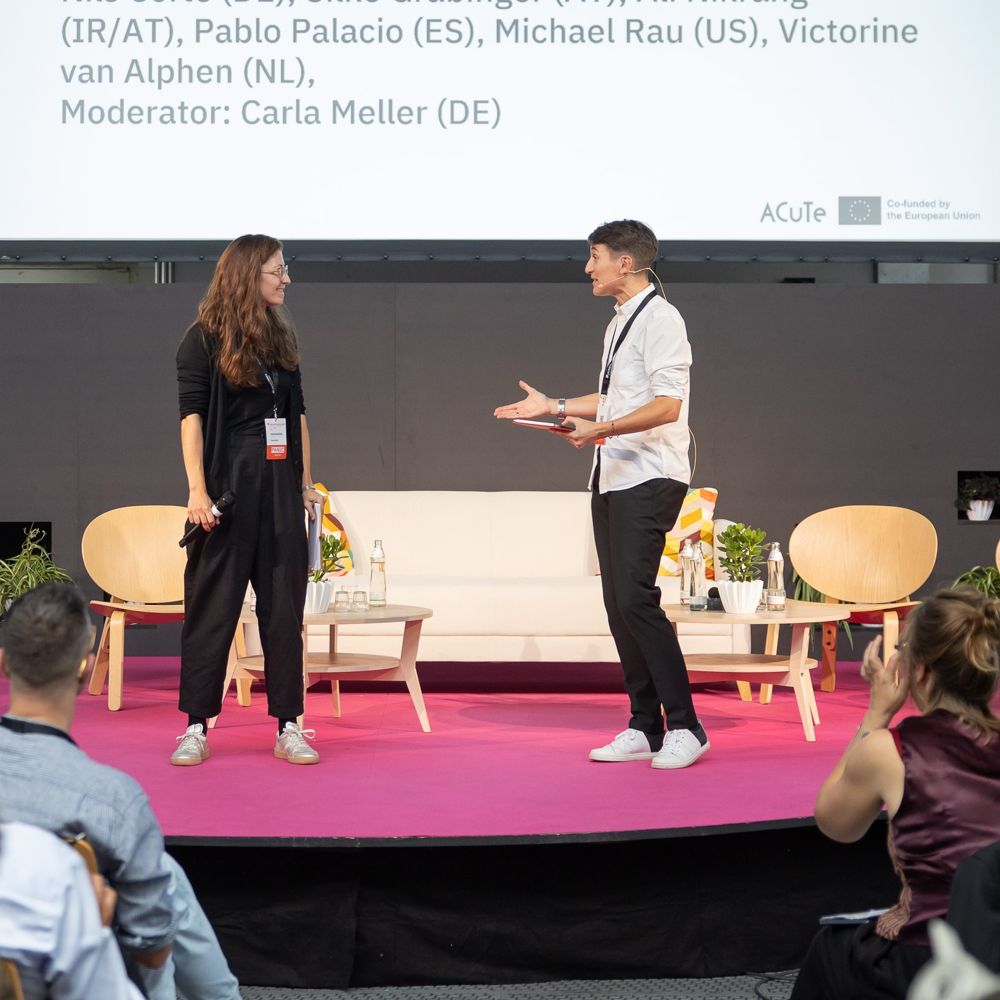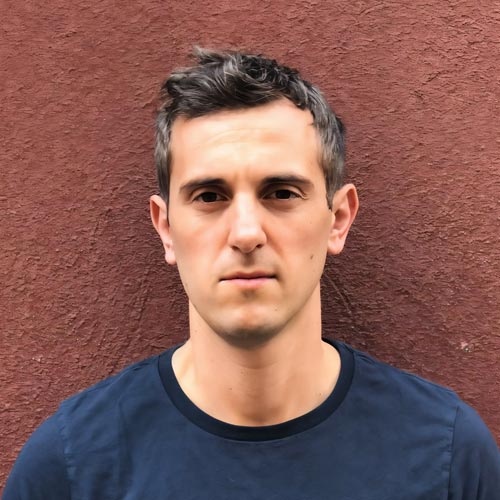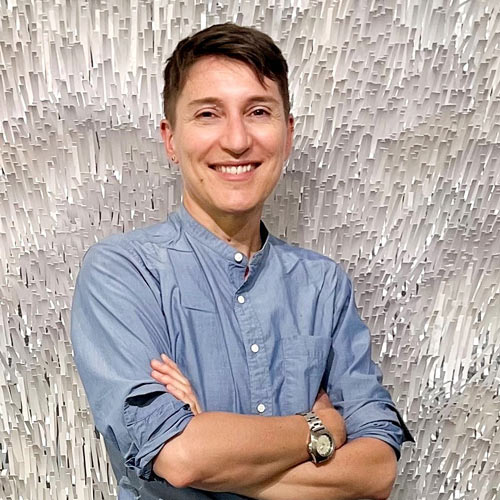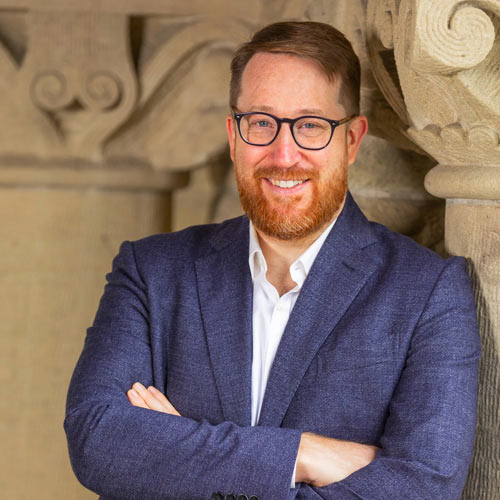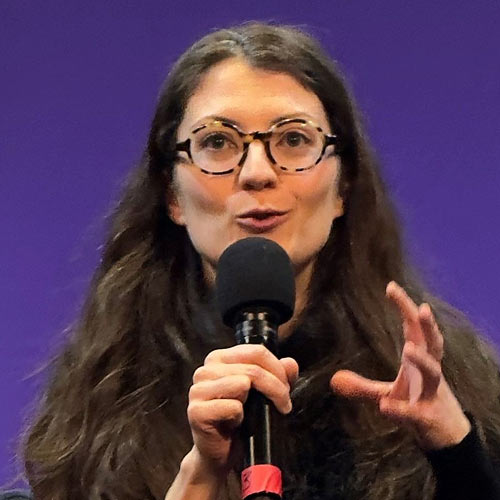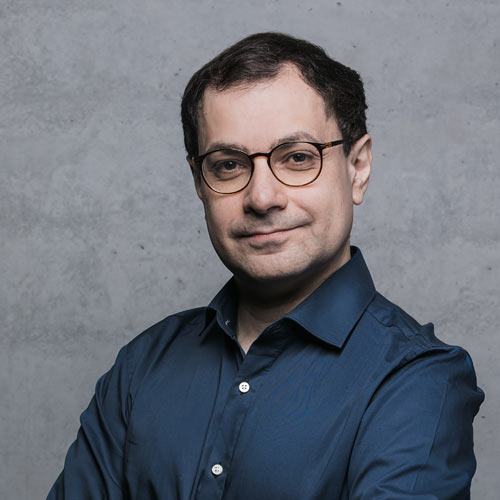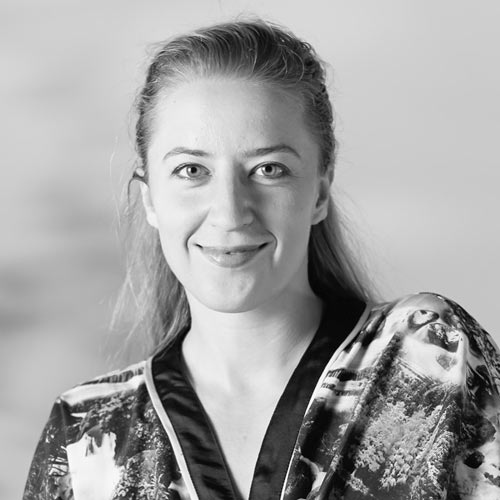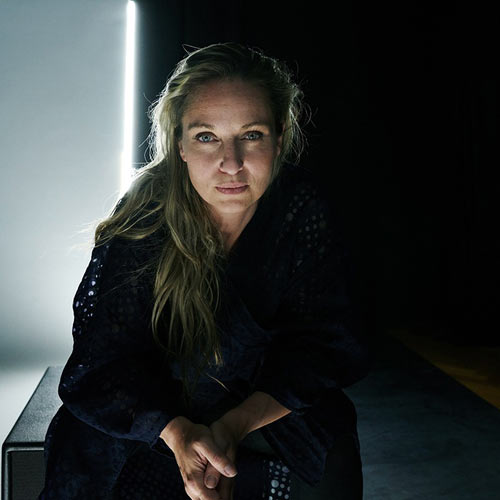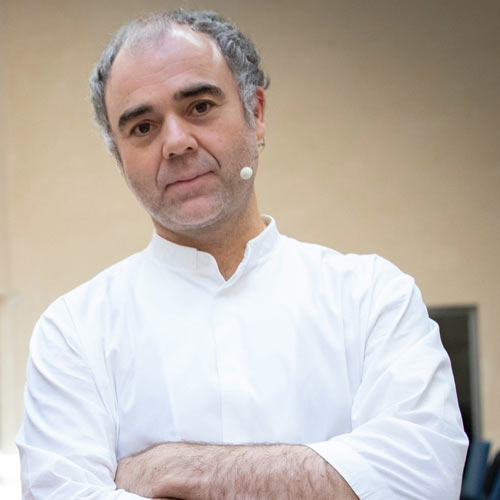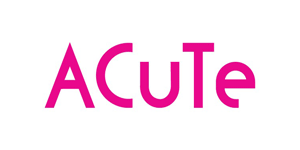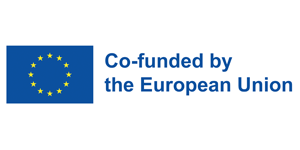Leading technologists and practitioners take the stage, to first share their speculative visions for the future, and then participate in a hands-on session to explore AI tools for the theater sector. We open with technologist Matthieu Lorrain, Creative Lead for AI & Creativity Research at Google DeepMind and co-founder of Liquid Logic, in a conversation with AC Coppens.
A FIRESIDE CHAT WITH MATTHIEU LORRAIN
What happens when generative AI abandons its role as mere tool for automation and becomes an instrument for artistic imagination? Matthieu Lorrain—Creative Lead for AI & Creativity Research at Google DeepMind and co-founder of Liquid Logic—joins AC Coppens for a conversation on the future of creative tools. With two decades of experience shaping interactive media, Matthieu explores how new AI-driven tools can support, expand, and even rewire creative processes. A strong advocate of “liquid media”—modular, adaptive, and ever-evolving—he brings fresh perspectives on how fluid forms of content might influence live performance and audience engagement. From speculative design to hands-on experimentation, this dialogue sets the stage for a practical deep dive into how tools augment artistic vision across disciplines, offering valuable insights not only for designers and digital creators but also for artists and storytellers working in live performance today.
TOOLS IN ACTION
This hands-on session dives into the practical landscape of AI tools for theater and live performance. The format begins with a fast-paced series of short pitches—each presenter demoing their tool of focus. Nils Corte writes and directs interactive theater with AI-choreographed robots and holograms. Michael Rau presents LLM-based live scripting, where audience input generates real-time dialogue. Ali Nikrang shares how datasets shape AI-generated music, from Strauss-style waltzes to co-creative tools. Victorine van Alphen explores AI image generation as a poetic, introspective medium, shifting how we perceive bodies, identity, and presence. Silke Grabinger combines choreography with performative art and robotics, focusing on the anthropomorphization of technological tools. Pablo Palacio is one of the co-authors of the AI Toolbox, a set of open-source tools designed to support generative computer methods for creative work in the performing arts.
Participants will then break out into workshop clusters to explore the tools more deeply: How does the tech work? What are the creative and operational benefits? What datasets or systems fuel it? How might these tools meaningfully shape their practice? Designed to be interactive and inquiry-driven, this session invites participants to test, question, and reimagine how AI systems might support theater—as both as an art and an operational structure.
